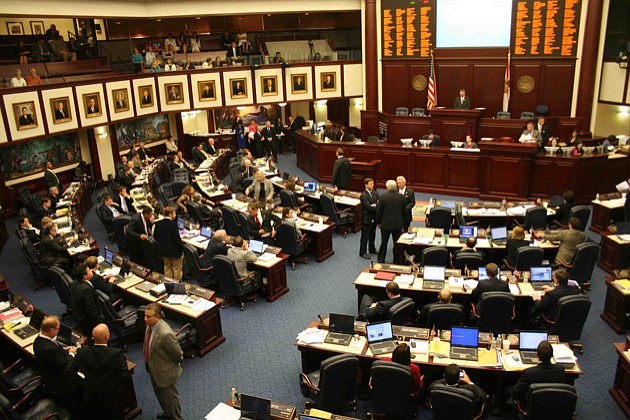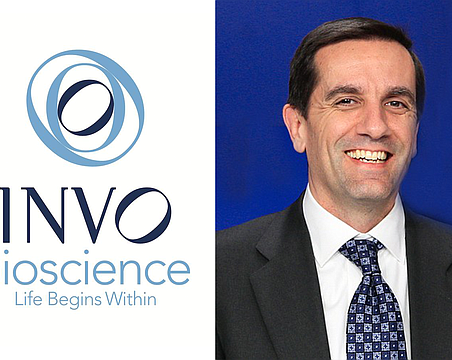REVIEW SUMMARY
What. Gov. Rick Scott's “Jobs Budget”
Issue. How much will the Legislature go along?
Impact. $4.1 billion in tax relief.
By the numbers. Click here to see how Scott plans to slowly phase out the corporate income tax.
Gov. Rick Scott's budget proposals aim to boost Florida businesses, adding directly to their bottom lines with billions in tax cuts while cutting government red tape and spurring job growth.
Corporate income taxes melt away, spending on economic incentive programs mushrooms and the state's role in reviewing local comprehensive plan amendments diminishes under Scott's proposed state budget and reorganization plan.
Dubbed the “jobs budget” by the new governor, the $65.9 billion spending plan for the state's next fiscal year includes cutting nearly $2 billion in taxes and fees. It slashes spending by $3 billion by cutting nearly 8,700 state jobs.
The budget also transfers $1.3 billion in state university tuition and $453 million for clerks of court outside the state budget, which totals $70.5 billion this year.
Sparking some controversy among legislators, the budget adds $8.5 billion to general revenue by consolidating 124 of nearly 300 trust funds. A report from the governor's office claims the strategy gives the state more flexibility to fund critical needs.
“This 'jobs budget' is focused on the goal of shrinking government, reducing your taxes, creating private sector jobs and holding government accountable,” Scott told a crowd at his Feb. 7 budget rollout event.
Scott leaned on his private sector know-how laying out a proposed $63.3 billion budget for the following year too.
That extra effort may be wasted.
President Mike Haridopolos signaled he won't support adopting a second year's budget. The administration's thinking is that a two-year budget allows more time to review budget goals and for the public to be involved in the process.
The biennial budget offers $4.1 billion in tax relief. Businesses benefit from the continued lowering of the corporate income tax rate and reductions in scheduled increases in unemployment compensation taxes.
The budget also proposes to use $150.8 million in general revenue to cover unemployment compensation tax assessments on businesses this year and next. Those payments would otherwise come from businesses to pay off the interest on federal unemployment advances.
The principal on that loan stretches to $4 billion next year, according to Sen. Don Gaetz, R-Destin, chairman of the Senate's budget subcommittee on transportation, tourism, and economic development appropriations.
Discussion of Scott's proposal to make the interest payments for businesses out of general revenue prompted Gaetz to ask rhetorically, “Does the governor propose a way to pay back the whole thing?” (An Obama plan in Congress would put off the interest payments for two years and require businesses to begin paying back the principal in 2014 by raising the tax base on employee's earnings from the first $7,000 to $15,000.)
Scott's tax cut ideas got support from a Feb. 15 Wall Street Journal opinion piece by Harvard professor Martin Feldstein, titled, “Want to Boost the Economy? Lower Corporate Tax Rates.” Feldstein served as chairman of the Council of Economic Advisers under President Ronald Reagan.
Scott's budget also gives Florida's 7.5 million households relief from school property taxes, known as the required local effort — the tax the state has required local school districts to assess on property owners. Scott also proposes a property owners get an added 25% cut for two years — a tax holiday, he calls it — in water management district taxes.
Scott's $800 million message
Already, one company announced plans Feb. 10 to relocate its headquarters and production facilities from California to Tallahassee just based on the potential for gradual elimination of the corporate income tax.
Scott's plan calls for cutting the 5.5% tax to 3% for 2012, and then reducing it 0.5% a year so that by 2018 it's gone. Without the cut, it's estimated that next fiscal year the tax would bring in about $2 billion.
The tax cut to 3% drops it to nearly $1.6 billion next year, saving businesses $459 million. Another $1 billion in corporate income tax savings is projected when the rate drops to 2.5% in 2013.
Banking on the tax cut in its move east is Bing Energy, which turned down a $10 million incentive from Massachusetts and ignored Illinois' overtures when the land of Obama raised its corporate tax rate. “Their executives say they were being courted by California, Illinois and Massachusetts,” Scott tells listeners in a recent radio address, “ ... but it was the plan to cut Florida's business tax that sealed the deal.”
Bing makes components for lightweight hydrogen fuel cells for use in automobiles, the defense industry and power generation. Bing plans to employ 244 workers at an average salary of $41,655.
If those employment benchmarks are met, Bing will receive $1.9 million in tax refunds over the next seven years as part of the state's Qualified Target Industry program. Tallahassee and Leon County will chip in partial matching funds.
The budget calls for the office of tourism, trade and economic development, that program to be combined with other economic incentive programs and receive $303.4 million in next fiscal year's budget beginning July 1. That's out of a total agency budget of $370 million, and amounts to a 143% increase.
The budget includes $6.2 million for Enterprise Florida, the public-private business recruiting entity that moves into the governor's office wing.
And in fiscal year 2012-13, Scott pumps another $200 million into the economic incentives pot, raising incentive funding to $503.4 million. Compare that to the current $217 million annual budget for economic development.
“By pumping $800 million into economic development over the next two years, Gov. Scott is sending a loud and clear message that he is serious about moving Florida toward the new economy,” says Mark Wilson, president and CEO of the Florida Chamber of Commerce, in a prepared statement.
In the current year's budget, the agency's total budget is $220.2 million. In fiscal year 2013, with the added $200 million in incentive dollars, the agency's budget balloons to $570 million. Scott's message: Florida is open for business.
Shrinking growth management
As promised, regulatory reform is also part of the budget. The plan reorganizes the Department of Community Affairs (DCA) by transferring several operations to a slightly smaller Department of Environmental Protection (DEP).
Community affairs' current $779 million budget with 358 positions ends up slashed to $110 million and 40 positions. But the DEP also loses 120 positions and has its budget cut 10% to $1.34 billion. In fiscal year 2013, when two federal grants end, the community affairs budget drops to $70 million.
The community planning division, the Florida Communities Trust (land buying grant programs) and public service energy move from community affairs to environmental protection.
That restructuring brought a response from Sen. Gaetz. At it's Feb. 10 meeting, Gaetz likened the combination to the reunification of East and West Germany, telling committee members and Scott's staff: “I wasn't wild about them when they were together the first time.”
Budgeted for $7.8 million this year, community planning should end up with a much smaller role based on proposals to limit state review of comprehensive plan amendments.
“DCA is now a toothless tiger,” says Al Zichella, president of the Florida Home Builders Association, speaking Feb. 17 to Collier Building Industry Association members in Naples.
That might not be enough for Gaetz. “I'd like to put it out of my misery. I'd like it to go away,” he told committee members at a Feb. 16 meeting as community affairs staff took questions about the agency budget.
Billy Buzzett, the new secretary of community affairs presented a plan to switch to an expedited review process already used by Pinellas County, its cities, the city of Tampa and several other local governments around the state. The faster process cuts state review time by 10 weeks — from 136 days to 65 days.
The Legislature adopted it as a pilot program in 2007. A 2010 audit report shows it to be working well.
The division also reviews developments of regional impact, the rural land stewardship program, and evaluation and appraisal reports of local plans. Moving the energy program cuts $156 million from community affairs' budget.
Proposed changes to state planning laws also would eliminate so-called “needs analysis." That detailed reporting requirement proved controversial because it generally required developers to hire costly consultants to show bureaucrats that adequate demand exists for their projects — as if developers wanted to build something for which demand did not exist.
Development interests argue that market forces dictate supply and demand for projects and isn't something state planners should weigh in on in a free market economy. (See “Tallahassee Knows Best,” Business Review, 11/5/09.)
The reorganization also transfers the emergency management division out of community affairs to the governor's office, and shifts the Florida Building Commission's operations to the department of business and professional regulation.
Secretary Buzzett, who took over the department last month, may be overseeing a shrinking agency. But Buzzett, an attorney who oversaw development of the new Panama City airport for his former employer, St. Joe Co., says, “The future of Florida is doing those long-range plans.”
And if there's not much of community affairs left to manage after the reorganization and proposed rewrite of growth management laws, Buzzett doesn't mind if it helps his boss balance the budget. “If I get worked out of a job in six months,” he says, “that's OK.”






